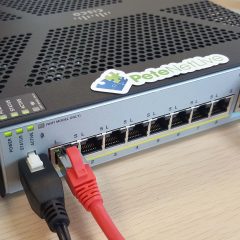Cisco ASA 8.2 Upgrade to 8.3
KB ID 0001366 Problem I can’t believe I’m writing this, it’s been so long since 8.3 was released (7 Years!) And still there’s firewalls out there running old code? Why is the 8.3 upgrade important? This update made some very major changes to the way we did NAT, and also the way we wrote ACL’s. It was a big change. I remember keeping my client firewalls on 8.2 for a while until I fully understood the...
Exchange Bulk Export / Import Mail Contacts
KB ID 0001349 Problem I had to do this today and realised, it’s been so long since I did it last, I’d forgotten how to do it. Before we go forward, please be clear, I’m talking about MAIL CONTACTS, these are Active Directory Objects that have an Email address, but DO NOT have a mailbox in your Exchange Organisation, and DO NOT have an Active Directory User. I point this out because you can have MAIL USERS that have...


